How Does A Natural Disaster Impact Your Take Home Pay?
What happens if you are scheduled to work and a hurricane strikes, or your office building floods, or the weather prevents you from getting to work? Are you entitled to be paid when a natural disaster keeps you from putting in the hours planned?
A lot of that depends on whether you are considered an exempt or a non-exempt employee.
The federal Fair Labor Standards Acts (FLSA) provides certain guidelines including requiring all workers be paid minimum wage and that non-exempt workers be paid overtime at a rate of one and one-half their regular hourly rate of pay for each hour worked in excess of 40 hours in any work week.
If a storm or other natural disaster forces a business to alter it’s usual schedule, what are your rights as a worker?
If you have questions concerning your take home pay, or any other wage or hour issue, it is important to consult with a dedicated Atlanta wage and hour attorney right away.
Generally, if you are a non-exempt worker but you do not work for whatever reason, the FLSA provides that you don’t have to be paid. This is generally true even in the event of a natural disaster, and even if you show up ready to work and you are sent home. On the other hand, if you are exempt, you are entitled to receive your regular pay, as long as it’s only a couple of days that you miss work due to the problems related to the natural disaster. If a business is closed for longer than a week, then additional considerations may affect both exempt and non-exempt workers’ take home pay.
However, even though in most situations non-exempt workers are not required by law to be paid when a natural disaster keeps them from working, many employers may still choose to pay them as a show of good faith. If you were planning to work and through no fault were prevented from putting in the hours, many employers will still compensate workers – especially when a natural disaster strikes.
Additionally, it’s a good idea to check any employment handbook or policy manual that your company has to determine if your company has set forth its obligations to workers in the event of closure due to bad weather or other problems. In some cases, a collective bargaining agreement may also be in effect detailing situations where non-exempt employees must be paid that are not covered by the FLSA.
On the other end of the spectrum, if you are a non-exempt first-responder or otherwise required to put in overtime during a natural disaster or other weather-related work disruption (you may be the only employee who can make it in), you must be paid overtime at a rate of one and one-half times your usual rate of pay for every hour worked in excess of 40 hours in any work week.
When natural disasters strike, your world may be turned upside down – including your work-life. It is crucial you continue to be paid for your work. If you have any pay related questions, please contact an experienced Georgia wage and hour attorney at Buckley Bala Wilson Mew LLP to review your situation and help ensure that you receive all the compensation you deserve.
